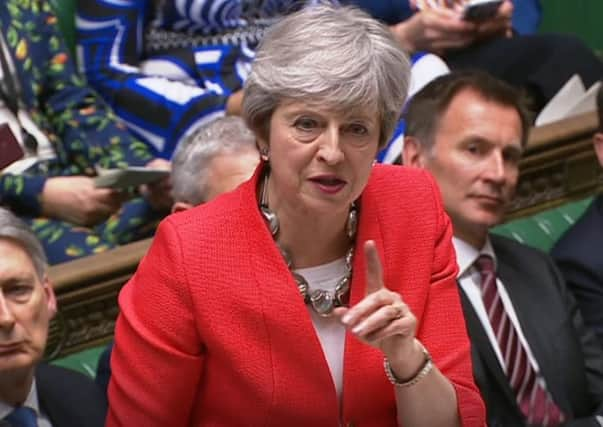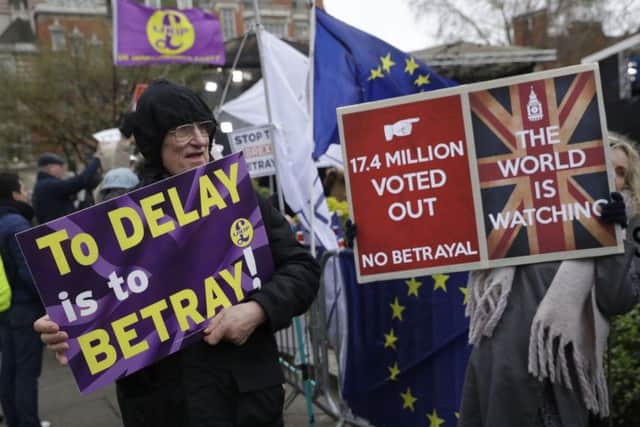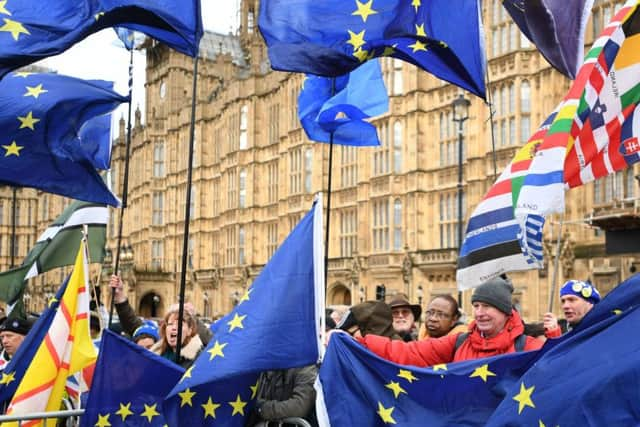The Yorkshire Post says: Tide of history against Theresa May after another humiliating Brexit defeat


Though the 149-vote loss was less than Mrs May’s record 230-vote defeat of eight weeks ago, this outcome is, potentially, even more damaging to the PM’s authority because of the proximity of March 29 when the UK is due to leave the EU with or without a deal.
Even though MPs are now expected to vote to rule out a no-deal Brexit, Sir Anthony Seldon, the renowned biographer of premiers, went further and suggested that Parliament has not been more turbulent, or unpredictable, since the First World War.
Advertisement
Hide AdAdvertisement
Hide Ad

Yet, as politicians consider their next steps, and respected business leaders like CBI director-general Carolyn Fairbairn tell The Yorkshire Post that continuing uncertainty will harm the economy, Sir Anthony’s wider assessment illustrates the size of the task confronting Mrs May as she fights, once again, to save her premiership.
He suggested a leader with the tactical acumen of Winston Churchill, guile of David Lloyd George and charm of Clement Attlee would have struggled after David Cameron quit immediately in the wake of the June 2016 referendum.
Combined with deep divisions on the Tory benches, a Labour party in disarray under Jeremy Corbyn, Northern Ireland’s intractable DUP now holding the balance of power and a self-serving European Union also in denial over the reasons behind Britain’s decision to vote leave, Mrs May’s tenacity in political adversity should still not be under-estimated.
Advertisement
Hide AdAdvertisement
Hide AdShe might have been at fault for not building a cross-party coalition of the willing at the start of her premiership to deliver Brexit and going back on her word by calling an ill-advised snap election in 2017, but she has been let down by arch Eurosceptic colleagues who abdicated their responsibilities and also those ideologically diehard Brexiteers who still appear irreconcilable.


Yet, while Westminster is now fixated by the blame game after Attorney General Geoffrey Cox’s legal advice on the so-called Northern Irish backstop was greeted with weary resignation by increasingly despondent Ministers and MPs, the key question is this: what next after EU supremo Jean-Claude Juncker warned Mrs May in Strasbourg that no further compromises could be expected of him?
The fact of the matter is that there is a country awaiting leadership and clarity as today’s Spring Statement by Philip Hammond, the Chancellor, is overshadowed by the fallout from last night’s vote – and the permeations of upcoming votes amid speculation that a General Election will have to be called in the near future.
In many respects, one of the more responsible interventions came from Ken Clarke, a former Chancellor, who said the backstop debate would be redundant if Britain and the EU negotiated a trade deal. Coming from an elder statesman who, incidentally, opposed the triggering of Article 50, it was a rare moment of enlightenment from a Parliamentarian steeped in law, politics and the economy – all of which are integral to Brexit.
Advertisement
Hide AdAdvertisement
Hide AdAnd while the toxicity of political discourse means that Mr Clarke’s views will be dismissed because he is an advocate for the EU, he does have a point as many Tory and Labour MPs continue to conveniently forget that they were elected in 2017 on manifestos that committed both main parties to implementing the referendum result.
Not only, therefore, will Parliament’s response in the coming hours and days shape Theresa May’s future, but it will set the tone for the country’s relations with the EU if and when trade talks can begin. Given that the stakes could not be any higher, now who has the necessary statesmanship?